👋 Hey there! I'm TJ. I write about data products, technology, software, and economics.
I'm a husband and father, living in Singapore, and from the Philippines. I explore data engineering and accounting at Titanium Birch.
On the Economics of Ticket Scalping
Profiting off the Animo

DLSU has just won a game against Ateneo after two years of losses to the rival. (Photo: Winston Baltasar)
Animo La Salle! My dear alma mater has just won against rival Ateneo in UAAP men’s basketball, 83-72, breaking a six-game losing streak to the Eagles since 2010. Hopefully it’ll continue throughout the season.
On Melting Coins and Negative Seignorage
We’re running out of coins!
Did you know that the Philippines suffers from a chronic coin shortage, despite coins in circulation being the highest among our ASEAN neighbors? Some of this can be attributed to coin hoarding or keeping coins in alkansyas and tucked under those frogs in commercial establishments, but some can also be attributed to coin smuggling, or the melting down of coins for their metal content.
On Annoying Drivers
I hate slogging through Manila traffic. It’s a horrible waste of time to spend an hour on an otherwise ten minute trip. What’s worse - there are drivers who think that being a good driver means that you gain five seconds at the expense of multiple minutes for everyone else.
After a couple of years of this madness, I’ve had just about enough of it, and the only way I can release my road rage is here. I’ve isolated five of the most annoying types of drivers that make me want to pull my hair out.
On Economics Education
Here’s what four years of economics education has done to my political leanings. I figure this isn’t rare.
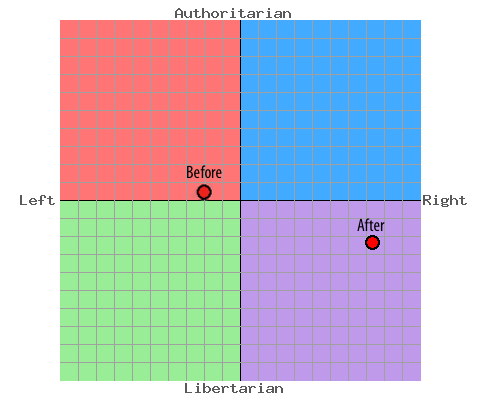
My Political Compass Change
thoughts/on-economics-education
On Ngrams Part 2: The Philippine Economy
Here’s the second part of this series on ngrams, as I’ve mentioned in a previous blog post. I’ve been messing around with the Google Ngram Viewer which was highlighted in a previous post. If you don’t already know, ngrams are basically charts that display how often a word or phrase appears in Google’s entire book collection. It’s a rough but quick and easy way to find out what people were writing about in various time periods.
This installment reveals that growth is now more important than development, the Phillips curve’s tradeoffs do not necessarily apply to this measure, that fiscal policy is largely affected by current economic conditions, and much more. See the graphs below (click to enlarge):
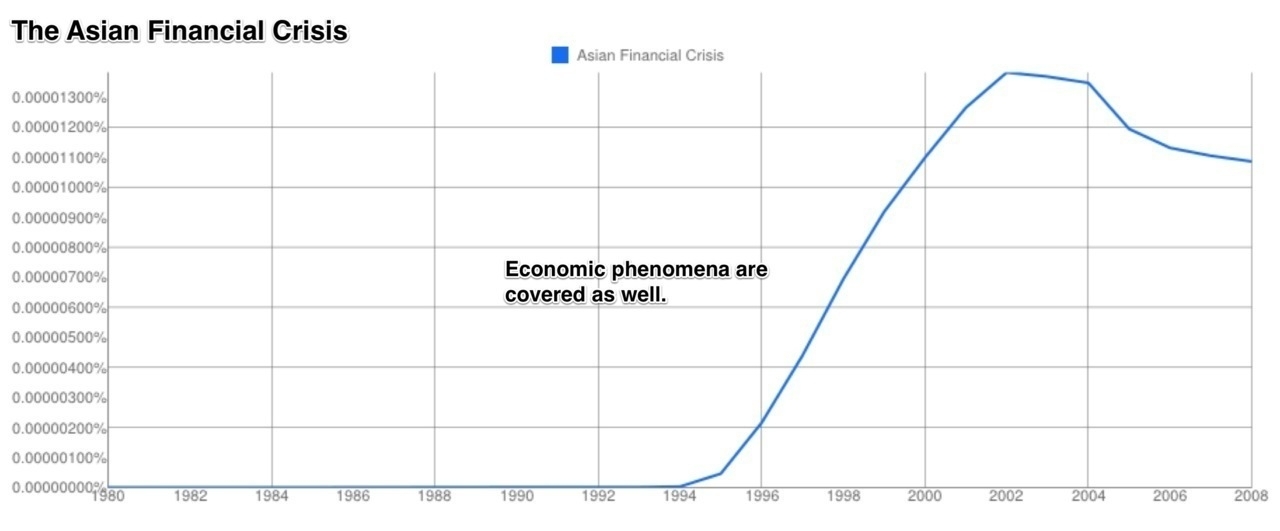
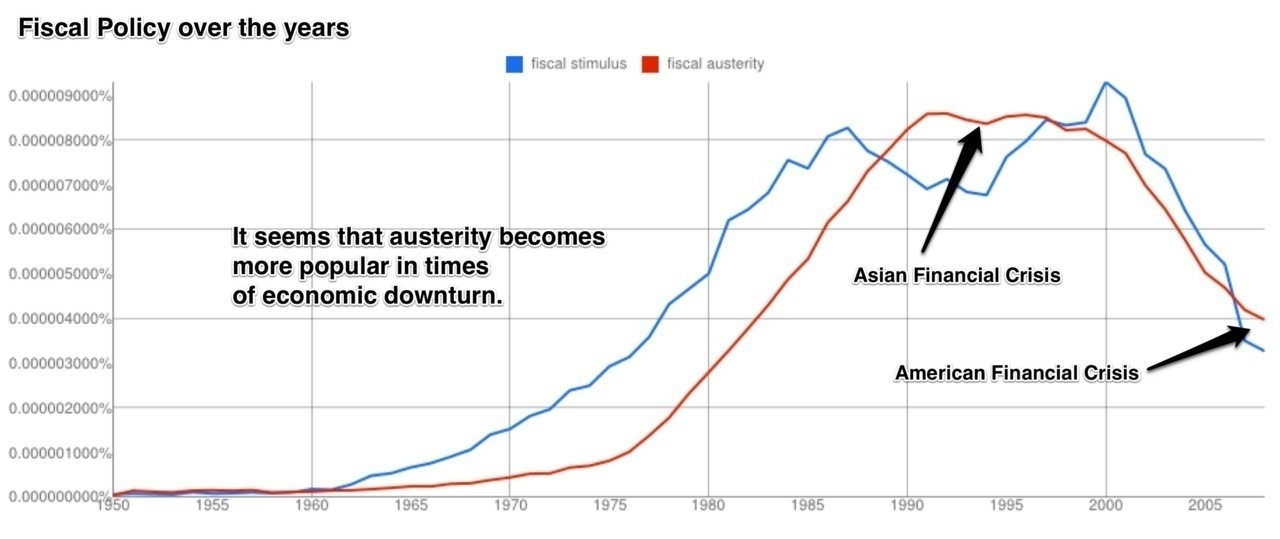
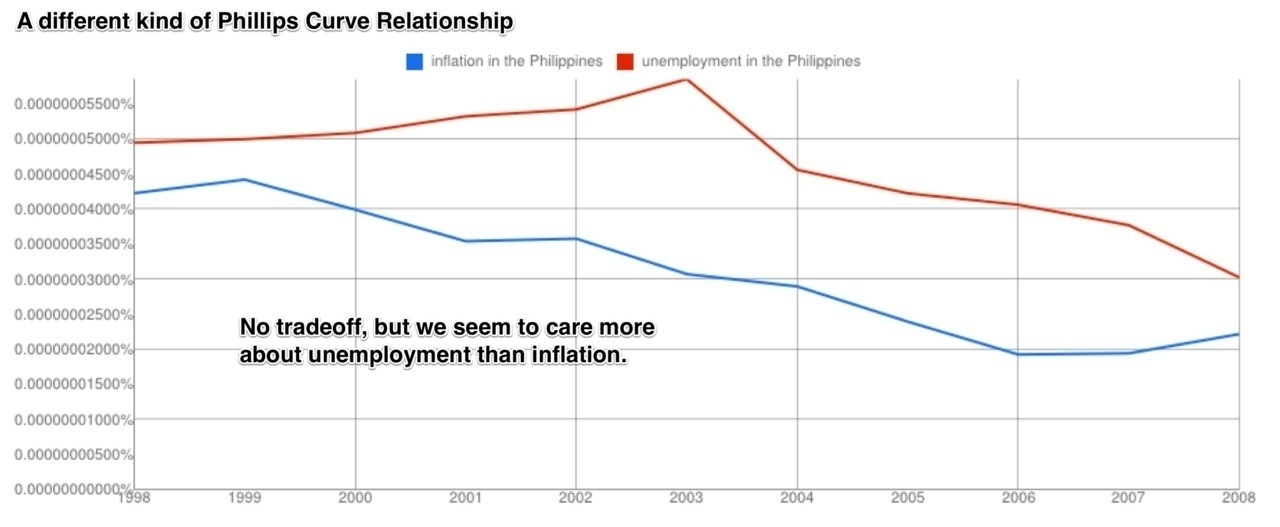
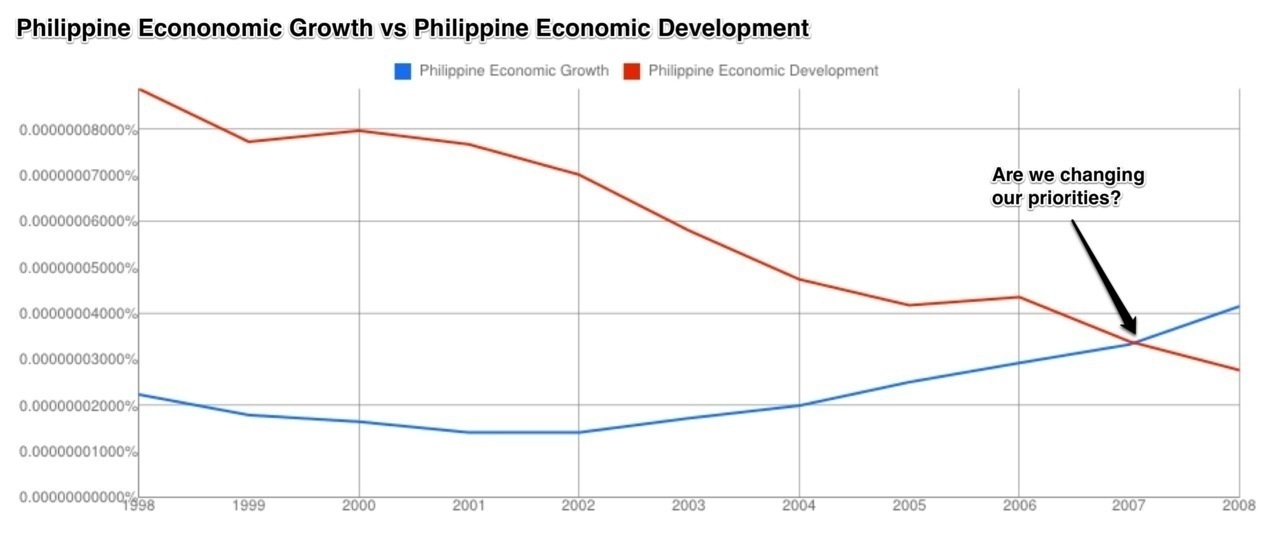
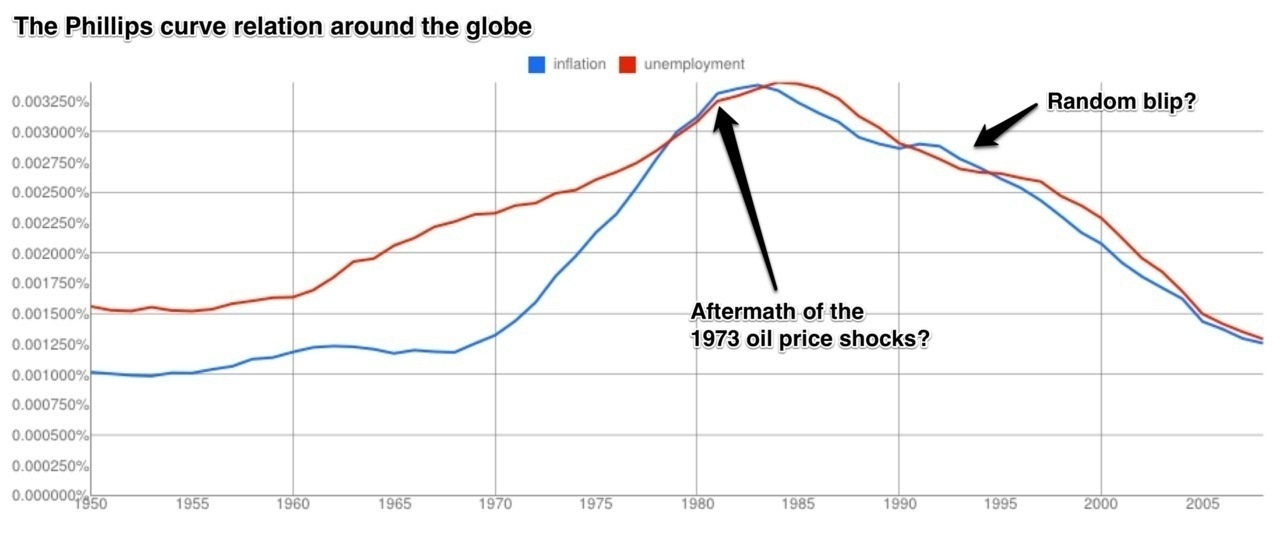
aliases: - 2012/05/on-ngrams-part-2-philippine-economy.html - content/thoughts/2012-05-22-on-ngrams-part-2-philippine-economy/on-ngrams-part-2-philippine-economy.html - posts/2012-05-22-on-ngrams-part-2-philippine-economy - thoughts/on-ngrams-part-2-philippine-economy
On Ngrams - Philippine History Quantified in Books
I’ve been messing around with the Google Ngram Viewer which was highlighted in a previous video post. If you don’t already know, ngrams are basically charts that display how often a word or phrase appears in Google’s entire book collection. It’s a rough but quick and easy way to find out what people were writing about in various time periods.
I’ve been digging around for interesting results on Philippine history and this is what I found. These range from revealing censorship in the Marcos period, proving that Rizal really was the spark of the Philippine revolution, to a weird time in the 1980s when people were crazy about the Barong Tagalog.
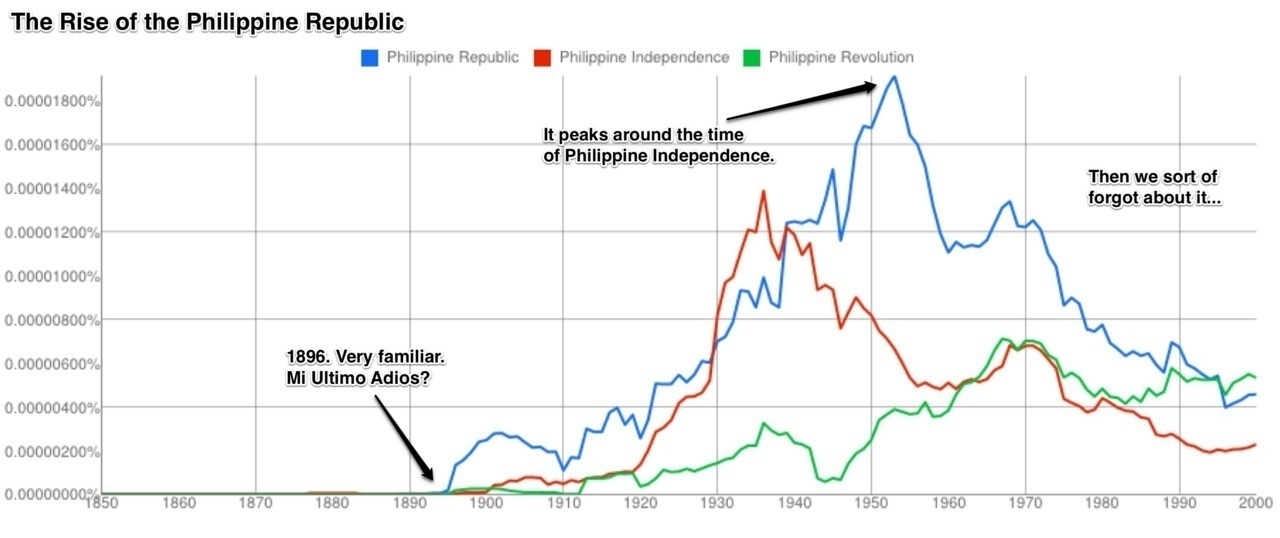
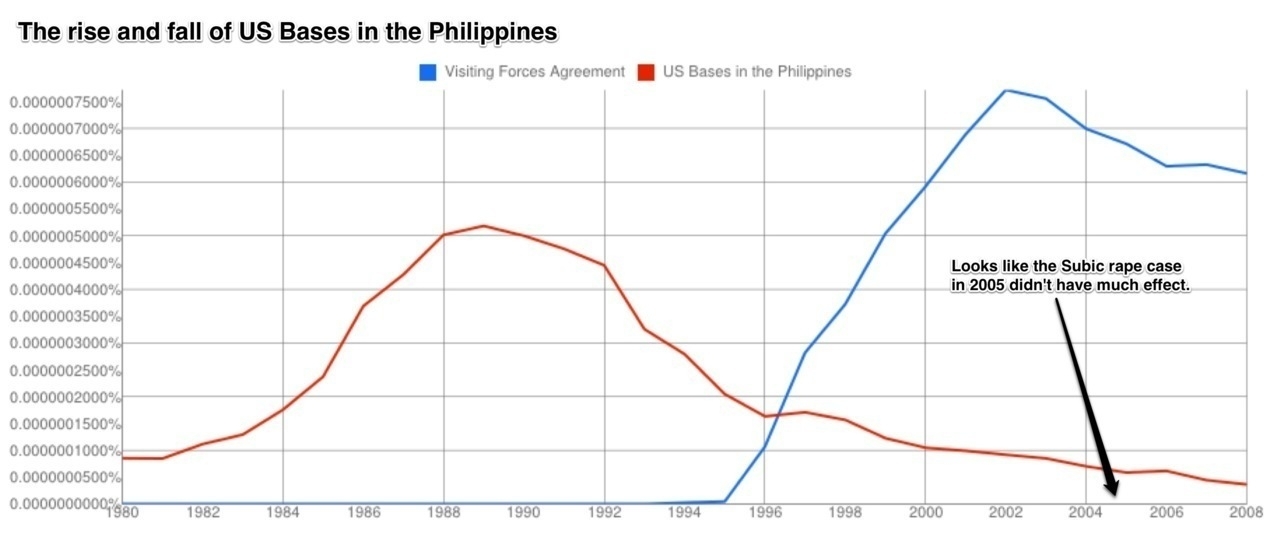
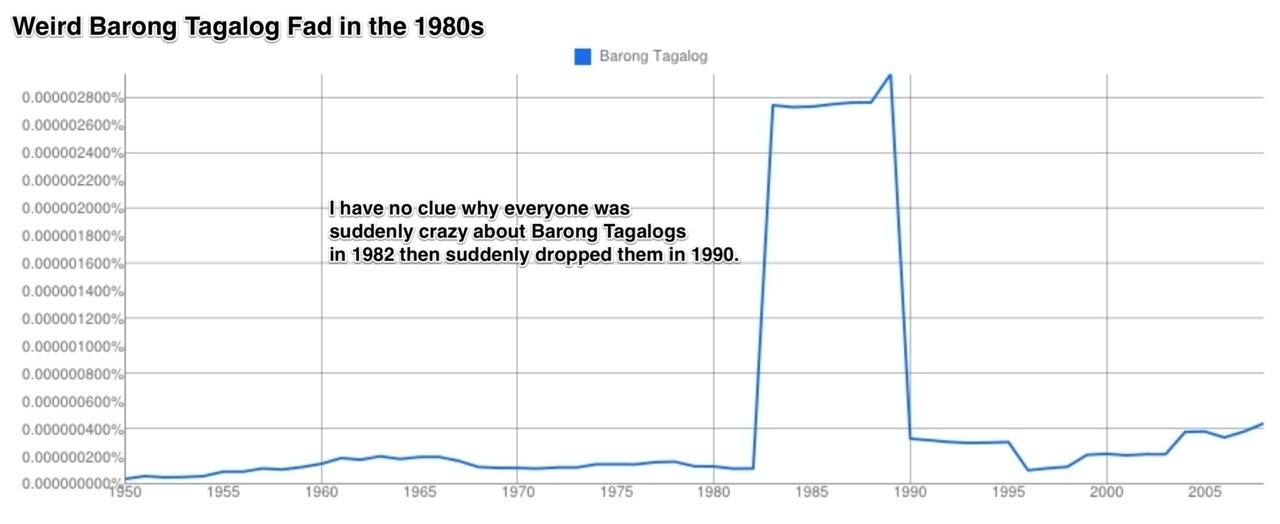
I have another set coming up soon on the Philippine economy, so watch out for that if this interests you. :D
aliases: - 2012/05/on-ngrams-philippine-history-quantified.html - content/thoughts/2012-05-14-on-ngrams-philippine-history-quantified/on-ngrams-philippine-history-quantified.html - posts/2012-05-14-on-ngrams-philippine-history-quantified - thoughts/on-ngrams-philippine-history-quantified
On Prize-Linked Savings
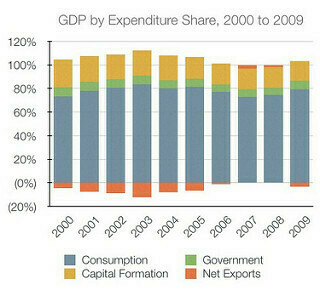
The Philippines GDP is still mainly spent on end consumption, crippling to a country that needs to develop and upgrade its own industry.
I love quirky solutions to economic problems, and this is no exception. Consider these two issues:
- Consumption makes up a very large chunk of our GDP, and while this may mean we’re happier, it means we have less to save and use for weathering shocks and building up productive capital. The ADB reports that household saving went from 9.8% of GDP in 2000 to 2.4% of GDP in 2007. Likewise, the BSP conducted a survey to find out that 8 out of 10 Filipinos were unbanked.
- Filipinos love the lottery, especially the poor and uneducated. The odds are horrible and you only win what’s left after the many tax and charitable deductions. It’s called a fool’s game or even a “tax on stupid people” for a reason.
This Freakonomics podcast showcases a new financial product that could be the stone to kill both birds: prize-linked savings. Essentially, it’s a savings account with a twist. You get an interest rate that is a bit lower than the prevailing rate, but all these small amounts of interest are pooled together to create a lottery fund which will be given out to some lucky depositors every month or so.